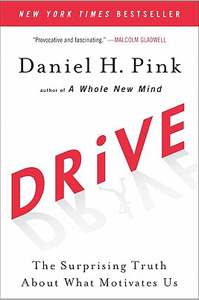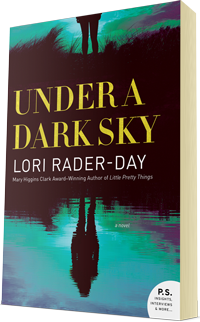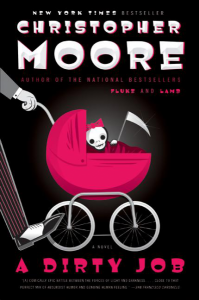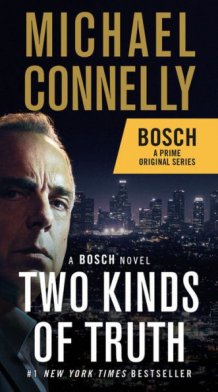From Frank
I answered a similar question to this last month in this post. But this question has a distinction, in that it is much broader -- reading habits in general, as opposed to when one is writing.
 |
| On Deck non-fiction |
The bedside books usually include a non-fiction title and a fiction title. My non-fiction title is still the biography of Augustus -- I haven't made much progress on that. But next up after that is Daniel Pink's Drive.
 |
| Came highly recommended |
Now, to be fair, I'm writing this post well in advance of the publication date, since Kristi and I are vacationing in Ireland from July 1-12. So I'm sure that both Lori and Jim's book will be finished by the time you read this, and I'll be onto another library entry and whatever is next in my owned stack on the bedside. I'm hoping for Blake Crouch's Recursion from the library, and there are a couple of acquisitions from Left Coast Crime vying to be up next on the owned side.
 |
| Read by Fisher Stevens |
 |
| Read by Titus Welliver |
 |
| Shades of Elmore Leonard |
Looking back over this, I see that I am fiction-heavy, and that many are in my genre, or even in the sub-genres that I write in. Why is that?
I think it is two-pronged. First off, I like these kinds of books. They interest me, and a pleasure to read. Ther's probably a reason I write crime fiction beyond just my career in law enforcement. I like the scope of human drama that seems to be examined so closely in much of this genre. So I read a bunch of it. That's probably ninety percent of the reason why. The other ten percent is putting a writer's eye on what my colleagues are doing. Trying to learn from them, and admiring the work they've done. And being insanely jealous at how good they are.
Reading (or listening) outside the genre is good, too, though. It feels like a complete break. Or nearly complete. If it's a book that isn't crime fiction, there's still a part of me paying attention to the craft. It's unavoidable. But it's easier to put that aside when the story is dissimilar from what I write.
I'm a firm believer that you should read what you like to read. Part of the reason some people never develop a love of reading is because they were forced to read things they didn't enjoy. Now, I'm all for stretching and expanding your horizons, don't get me wrong. But reading is a pleasure, and you should read what you want.
Speaking of which....
____________________________________________
Blatant self-promotion, brought to you by me:
 |
| You Can Get It Now! |
In it, my co-author Colin Conway and I dive into the explosive aftermath of a controversial police shooting in Spokane, Washington, where everyone has an agenda and nothing is what it seems to be.
Eric Beetner said that Charlie-316 "Crackles with authenticity and ripped-from-the-headlines urgency."
Trust Eric.
And make me smile -- give Charlie-316 a read.



